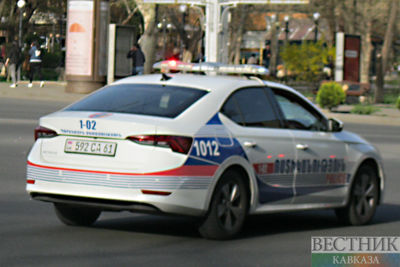As tensions rose between Azerbaijan and Armenia amid clashes at the border and military preparations, a Turkish scholar has said there is a likelihood for clashes to occur until the territorial conflict between the two countries is resolved. “Armenia and Azerbaijan are ready to clash with one another at every chance possible,” said Prof. Mitat Çelikpala from Kadir Has University, specialized in Eurasian security and politics, in an online interview with Hürriyet Daily News.
“We will face these clashes emerging when least expected until the territorial issue gets resolved between Azerbaijan and Armenia,” Çelikpala said. When asked if the latest clashes can open a new front in the decades-long conflict, Çelikpala said he does not think that is going to be the case. “I don’t think so. We can understand this as such: The line where Upper Karabakh stands has been an engagement area nearly since the early 1990s. Both sides have strengthened their fortifications and have positions against each other,” he said. Çelikpala also underlined that the Upper Karabakh region is significant due to its location as it is near the energy transportation lines that Turkey established over Georgia and is also near the natural gas pipeline between Russia and Armenia. Before, both sides were able to carry out agricultural activities with various agreements made with each other. It was one of the regions both sides engaged with one another, which could have triggered sensitivity too,” he said.
On a possible peaceful resolution to the conflict, Çelikpala said that despite the efforts, no concrete solution emerged. “But think of it like this: No matter what, this goes back to the historical process. In the modern world’s perspective, Upper Karabakh is within the territorial integrity of Azerbaijan, but under the occupation of Armenia,” he said. “In my opinion, unless the international community finds a solution both sides can agree on, one of the sides will try to solve with clashes,” the professor added.
Çelikpala also conveyed Turkey’s stance about the conflict, saying that Ankara has been overtly taking its position in support of Azerbaijan. “Before, Turkey was standing by Azerbaijan but was in a more balanced position. As the protocols vetoed, Turkey’s stance is clear: It is with Azerbaijan,” he said. He also added that the recent military exercises, initiatives, military, and defense cooperation between Ankara and Baku are “reflections” of this proximity. As for Turkey’s approach to the conflict and its expectations, Çelikpala said, Turkey would not want a war between Azerbaijan and Armenia. “That’s why there has always been an agreement with Russia, and the Upper Karabakh issue nearly froze for almost 30 years,” he said.
The professor also underlined that both sides have been investing in their militaries and as Azerbaijan started to gain more revenue while energy prices were high, it spent almost as much as Armenia’s budget on its military. “A huge infrastructure was built. Turkey and Israel are among the countries which Azerbaijan cooperates with, but Russia and China are among the top countries selling arms,” he said.
When asked if it was possible for Ankara and Baku to build a joint army, as suggested by an Azerbaijani politician, Çelikpala said that it would not be possible, and both sides would not want to do so. “Because what Azerbaijan values is its independence, being an independent state. I think that being strategic partners is a discourse that would make Azerbaijan and Turkey happy,” he said.
Concerning the other side of the conflict, the Armenian side, Çelikpala said that the country has been getting “more and more isolated” from the rest of the world. “[Armenian Prime Minister] Nikol Pashinyan, who the [Armenian public] supported started to fail the public’s expectation from 2018 to 2020,” he said. He also referred to the security doctrine Pashinyan announced just before the conflict, and that he did not bring any solution to the territorial conflict.
“This Upper Karabakh issue started to pressure [Armenians] because it is being isolated. [While] for Azerbaijan, it is the opposite,” Çelikpala said. When asked if the internal pressures can shape Armenia’s foreign policy, Çelikpala said that until this day, it had an impact but did not shape the politics.
















